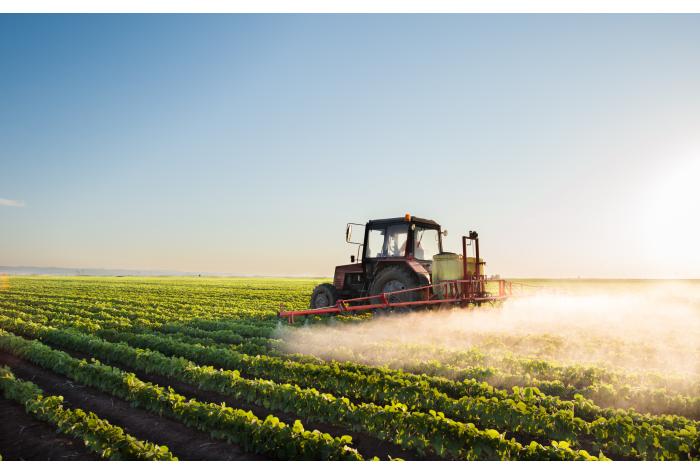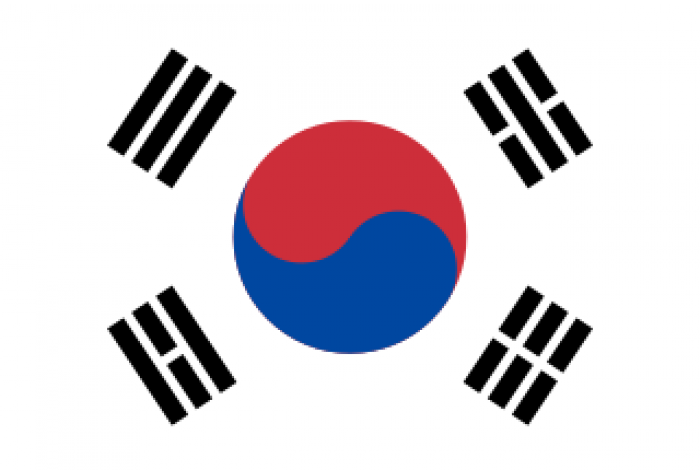TAILORED IMPORT TOLERANCE SERVICES

Why Are Import Tolerances Needed?
In an increasingly complex and regulated global marketplace, compliance with import regulations is not only essential for market access but also crucial for maintaining consumer confidence in your products. We at knoell can offer comprehensive and tailored import tolerance services designed to simplify the process while ensuring regulatory compliance every step of the way.
A maximum residue level (MRL) is the highest concentration of a pesticide residue legally allowed in or on food or feed when a plant protection product is applied correctly, following its label instructions. An MRL is a compliance standard, not a human safety standard, but it is evaluated via risk assessments to ensure that no human health concern would be posed by the residue level allowed by an MRL. An import tolerance is an MRL set on imported agricultural commodities and enables trade. Import tolerance levels likewise undergo risk assessments and therefore are vital to allow regulatory authorities of the importing country/region to verify that imported goods meet their safety requirements.
The global landscape of import tolerance regulations is evolving. More and more countries are establishing standards for residue levels and conducting enforcement testing on imported foods. To facilitate international trade, it is crucial to achieve harmonization of MRLs across different countries and regions. Missing or disharmonized MRLs put agricultural shipments in danger of being rejected at ports. Growers are recognizing the importance of import tolerances and are more likely to use plant protection products that have a robust set of import tolerances to minimize their risk.
At knoell, we understand the significance of import tolerances in ensuring safe and efficient trade of food products. Our team of experts specialize in assisting clients with import tolerance applications, ensuring that their products meet the safety requirements of the importing country or region. We stay up-to-date with the shifting landscape of import tolerance regulations and can help you develop a strategy for your pesticide that will increase its appeal with growers while minimizing cost and complexities for you.
If you have a registered plant protection product that is being used on goods for export or are involved in the import and export of food products, and require assistance with import tolerance applications, please don’t hesitate to contact us. Our team is dedicated to helping you navigate the complex world of international food trade and ensure that your products are assessed for human safety and compliant with regulations.
For further information on our services please check our factsheet
Our Services
- Conducting comprehensive strategy assessments and data gap analyses for your projects, ensuring a solid foundation for decision-making.
- Developing plans for residue trials, including careful monitoring to generate reliable data.
- Providing expert technical writing services with rigorous quality review measures for residue report preparation and summarization, ensuring accurate and high-quality documentation.
- Drafting import tolerance petitions and conducting MRL assessments, employing a systematic approach to address regulatory requirements effectively.
- Submitting dossiers to competent authorities, ensuring compliance with all necessary documentation and guidelines.
- Monitoring the submission status of dossiers and actively responding to authority requests throughout the import tolerance setting processes, ensuring smooth communication and timely resolution of any queries or concerns.
Our regional scope
At knoell, we understand that each country or region operates under its own set of rules and regulations, and that unique local conditions can often pose significant challenges. Despite these complexities, we are committed to ensuring that every project meets the high standards that have become synonymous with knoell. With our extensive expertise across multiple markets and our global presence, we are equipped to handle various regulatory environments. Even if a specific market is not listed, we encourage you to reach out to us, as we may still be able to provide the necessary support and solutions you require. Your success is our priority, and we are here to help you overcome regulatory hurdles and achieve your goals.
Codex Maximum Residue Limits (CXLs) are international import tolerance MRLs widely recognized by many countries worldwide, set via the Joint FAO/WHO Food Standards Programme under the responsibility of the Codex Alimentarius Commission. The Codex Committee on Pesticide Residues (CCPR) identifies those substances requiring priority evaluation for CXLs. The Joint FAO/WHO Meetings on Pesticide Residues (JMPR), composed of international experts in toxicology, pesticide residues, and risk assessment, review available data and recommend MRLs in specific food products. Following the JMPR evaluation, CCPR discusses the recommended MRLs and, if acceptable, submits them to the Commission for adoption.
Companies can request that a chemical be put up for review by Codex, and substances are re-reviewed periodically. Separate dossiers are required for toxicology and for residues. With experience from working on numerous JMPR submissions in the past, knoell is well-positioned to provide comprehensive assistance throughout the entire three-year process.
Import tolerances set by the European Union are binding on all Member States, and EFSA’s guidelines are particularly stringent. At knoell, we stay abreast of the latest EFSA regulations and developments to ensure your import tolerance submissions align seamlessly with their expectations. The EU applies a default MRL of 0.01 mg/kg for any active substance/commodity combination for which an alternative MRL has not been established.
Our team of highly skilled scientists and regulatory specialists is well-versed in the intricacies of IUCLID format, ensuring that your import tolerance data are accurately compiled, structured, and submitted according to EFSA's specific requirements. By partnering with knoell, you gain access to a wealth of knowledge and industry-leading expertise to navigate the complex IUCLID format with ease.
All EU MRLs implemented prior to 1st January 2021 were adopted as Great Britain (GB) MRLs. To import products into Great Britain with residues that may exceed the GB MRL, or for new authorizations, you must now apply for an import tolerance with GB. If a substance comes within the definition of a plant protection product and has no established tolerance, GB applies a default MRL of 0.01 mg/kg unless the substance is exempt from MRLs. Under Brexit, EU law applies in Northern Ireland (NI) and therefore EFSA MRL regulations apply in NI.
GB MRLs remain valid until they are amended, so GB MRLs and EU MRLs may become different over time. knoell has experience with GB import tolerance requirements and dossiers and can help. Trust knoell as your strategic partner to navigate the import tolerance landscape and unlock new market opportunities in Great Britain and Northern Ireland.
Taiwan does not automatically adopt MRLs established by Codex as default standards. Many pesticides and animal drugs commonly used in the United States and internationally do not yet have established MRLs in Taiwan. There is a default tolerance in Taiwan for most pesticide residues of 0.01 mg/kg.
knoell has succeeded with many Taiwan import tolerance dossiers and understands the regulations. Our local staff have established relationships with the relevant authorities, allowing for seamless communication in Chinese and efficient dossier reviews.
Taiwan has been intensifying its enforcement efforts through the utilization of cutting-edge, highly sensitive equipment. Consequently, imported products containing chemical residues face a heightened risk of rejection if their MRLs are not established. It is crucial for businesses to prioritize compliance with Taiwanese regulations to mitigate the potential impact of these enforcement actions and maintain market access.
The application process for import tolerances in Japan can be lengthy and complex. Japan also operates with a default MRL of typically 0.01 mg/kg if no other tolerance is established.
At knoell, we recognize the unique nuances involved in navigating Japan's regulatory environment and have established collaborative partnerships with local experts. This allows us to ensure that import tolerance submissions adhere to the latest requirements imposed by Japanese authorities and that communications with Japanese authorities are successful.
Since the implementation of the pesticide “Positive List System” by the Republic of Korea on 1st January 2022, adherence to Korean pesticide MRLs has become mandatory for imported goods. Default MRLs of <0.01 mg/kg are also in effect.
Importers operating in South Korea must also comply with a range of other regulations, including labeling requirements, import permits, and food safety inspections. These regulations are designed to ensure that imported products meet the high standards for safety and quality set by the South Korean government.
knoell has an established track record handling Korean import tolerance applications, having successfully supported numerous clients in this process. Our local staff can work directly with the relevant authorities, streamlining communication and facilitating efficient navigation of the regulatory landscape throughout the entire one-year process until a MRL is set.
knoell has successfully supported companies with establishing MRLs on imported goods in Australia. As with most of the countries listed, Australia maintains its own list and does not defer to other MRLs such as Codex. Australia also does not have any provision for default MRLs.
Australia’s process for establishing import MRLs is quicker than most regions, particularly if applying for harmonization/alignment with international trading partners.
Recently, Australia coordinated an initiative with the Asia-Pacific Economic Cooperation (APEC) to harmonize MRLs through an APEC guideline for import MRLs. Although this regulatory process is still evolving, it highlights Australia's proactive stance in promoting consistent standards within the region. knoell remains abreast of these developments to provide clients with the most up-to-date guidance in APEC MRL matters.
Applications for tolerances on imported food follow a similar process to that used for in-country uses. In the U.S., MRLs are typically referred to as tolerances.
There is a NAFTA Import Tolerance Guidance Document that details data requirements to meet NAFTA standards for the establishment of import tolerances in the U.S. and Canada. Tolerance petitioners still must submit separate import tolerance/MRL petitions to the United States and Canada and must adhere to each country’s specific formatting and other requirements. The common set of data requirements presented in the guidance document, however, typically will result in a reduced data set, as well as a more efficient and cost-effective review process for obtaining import tolerances in North America.
knoell has experience with the joint requirements as well as the individual formatting and submission requirements for both the United States and Canada and can help you submit either an individual or a joint application for an import tolerance/MRL. With our guidance, you can streamline the process and ensure optimal compliance with both countries' standards.
Contact Us




